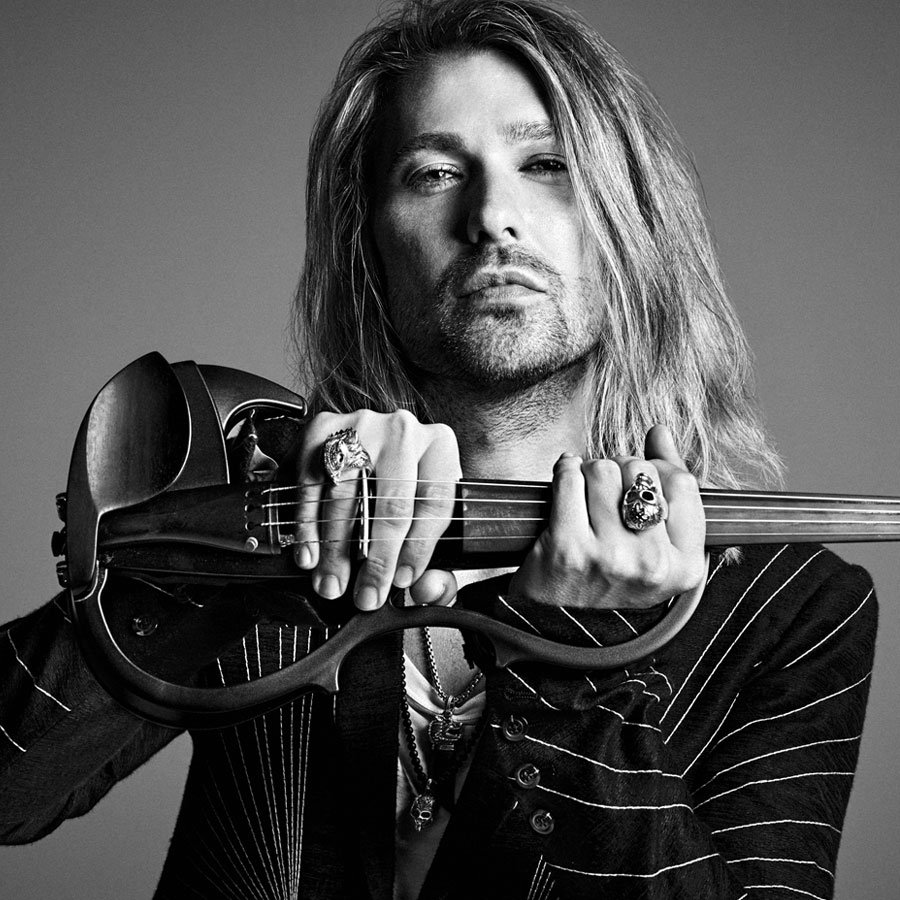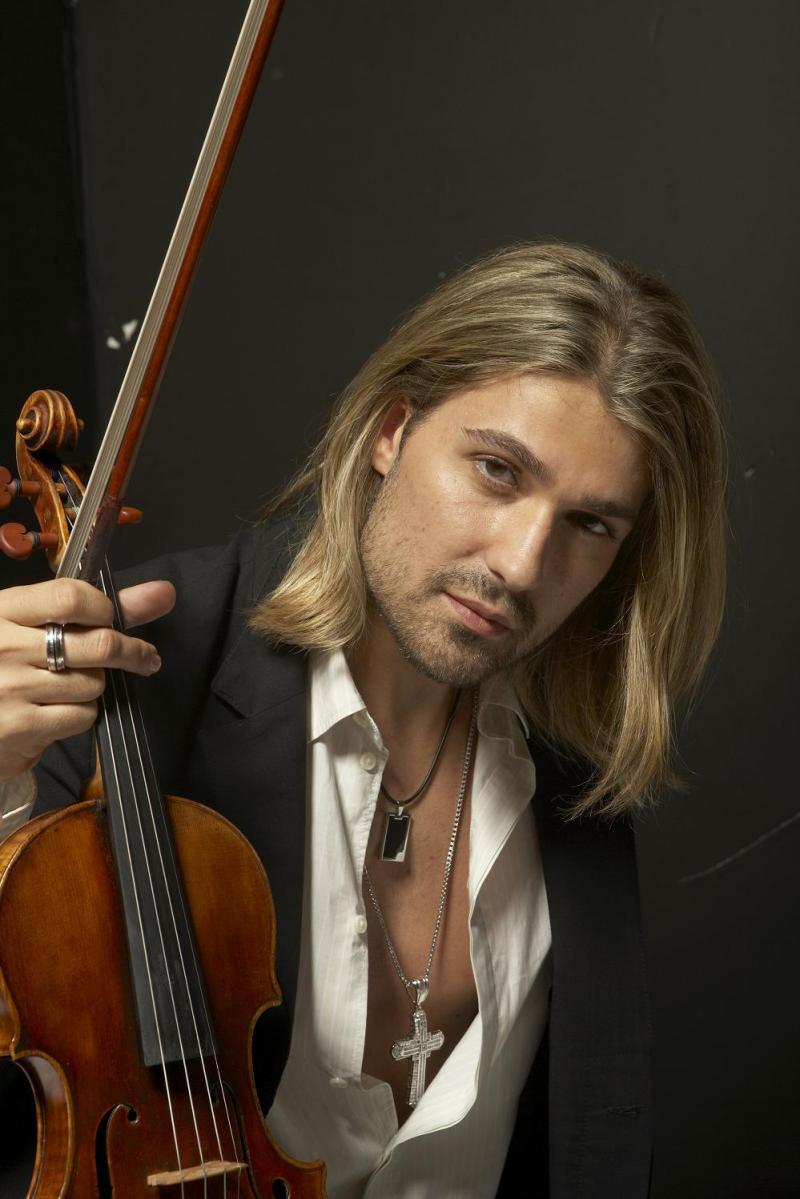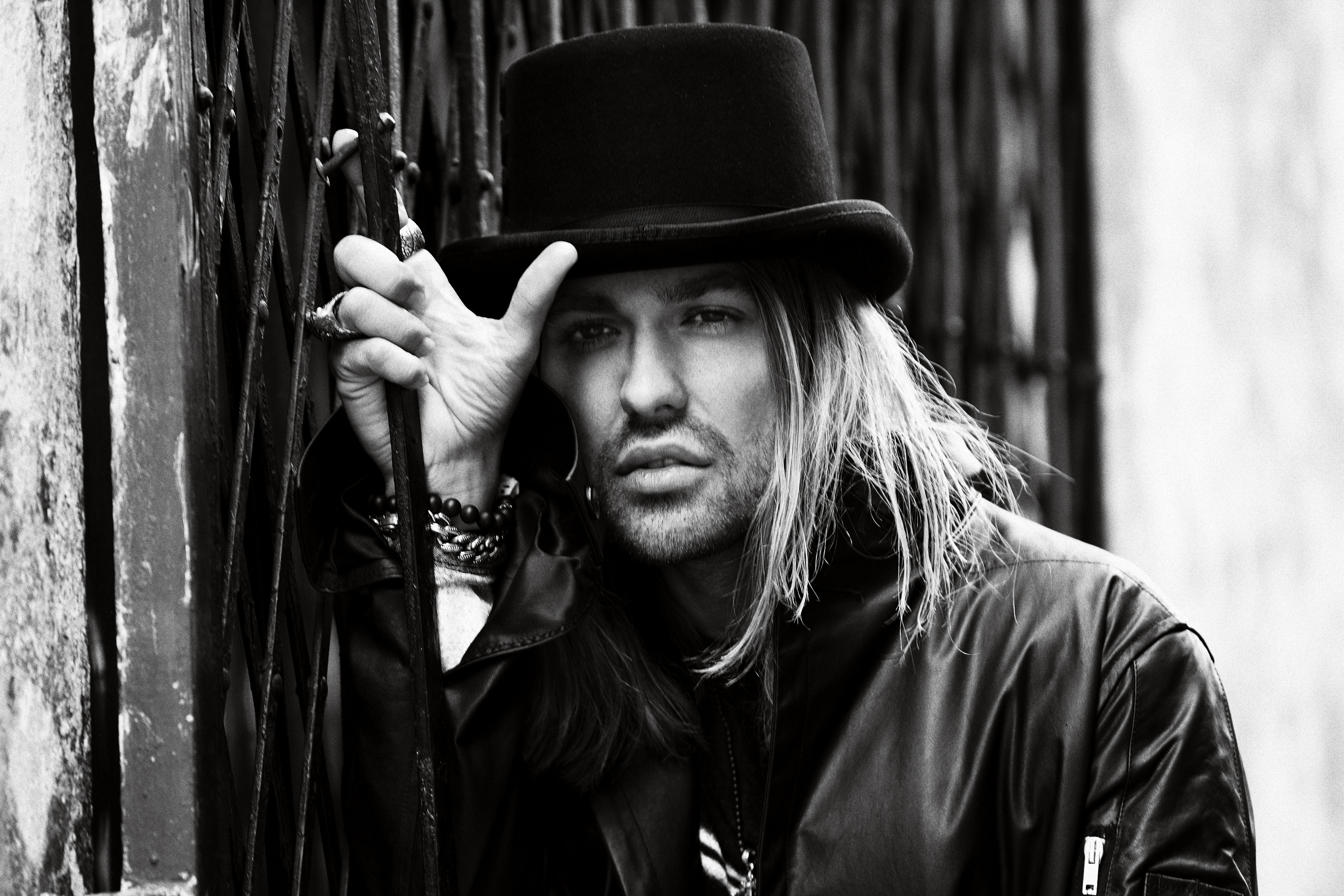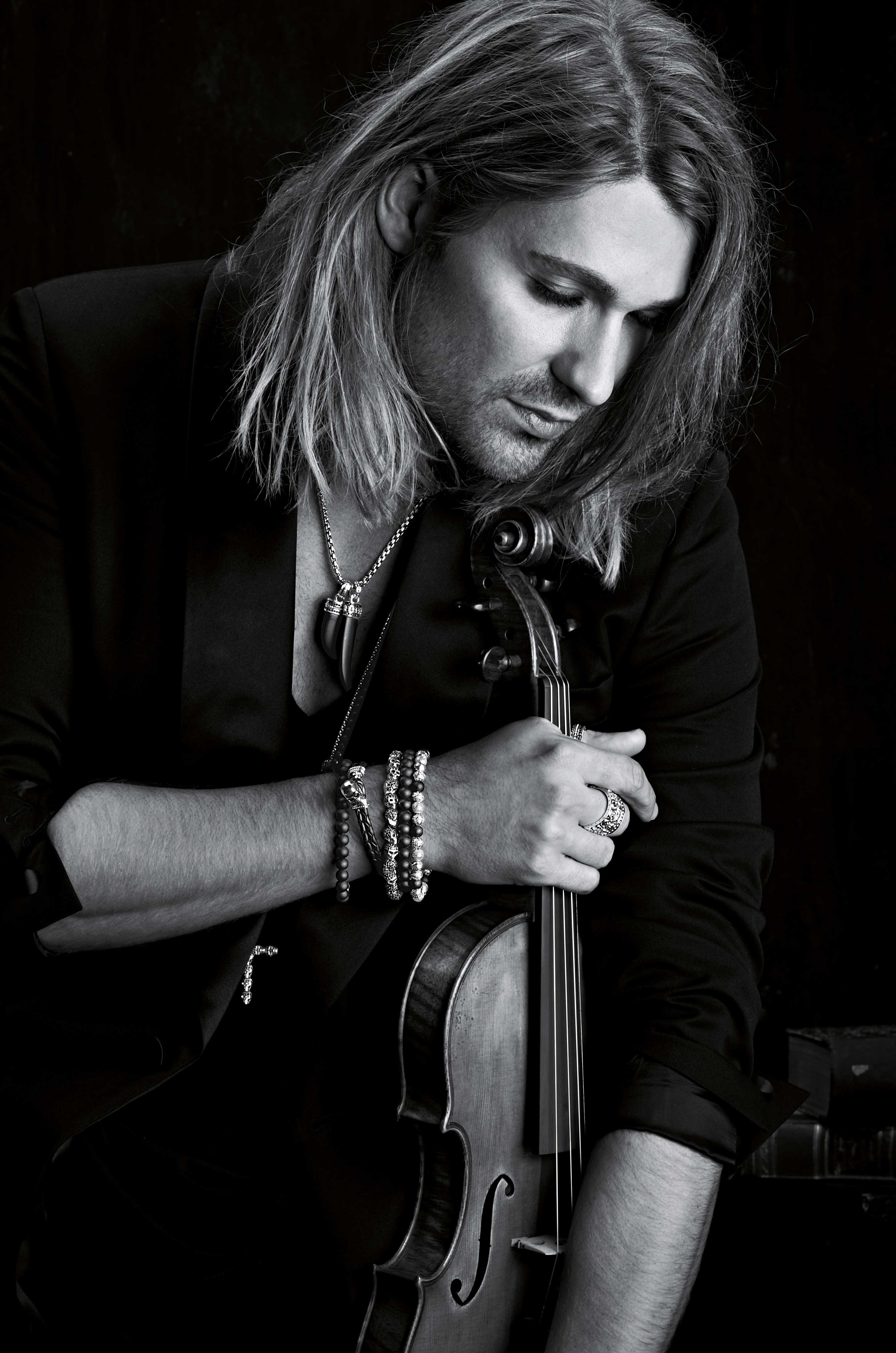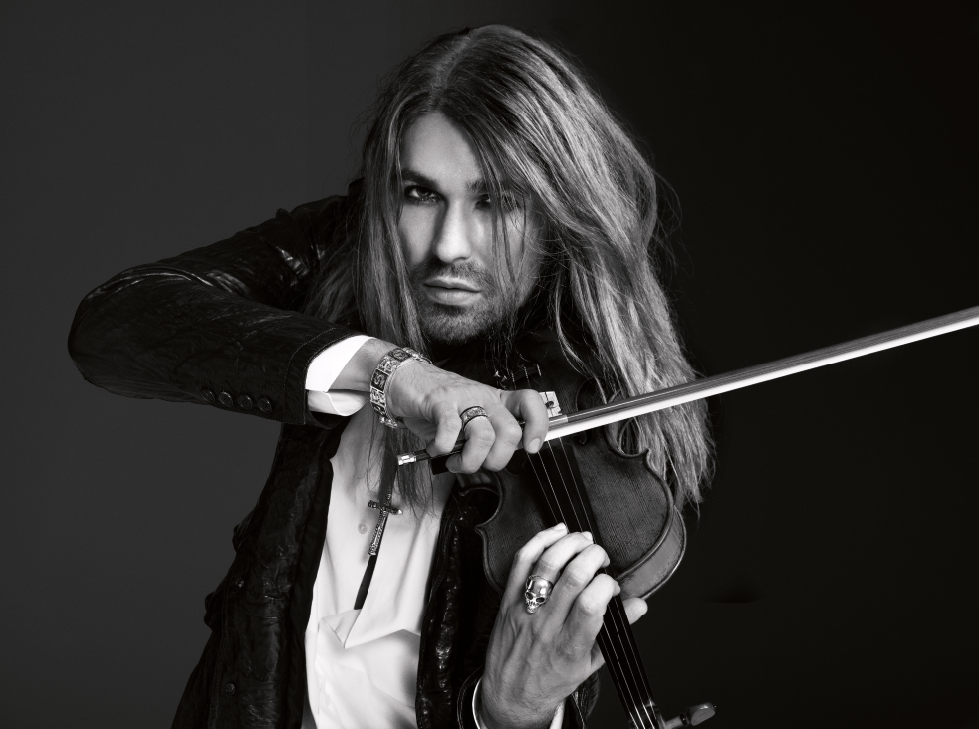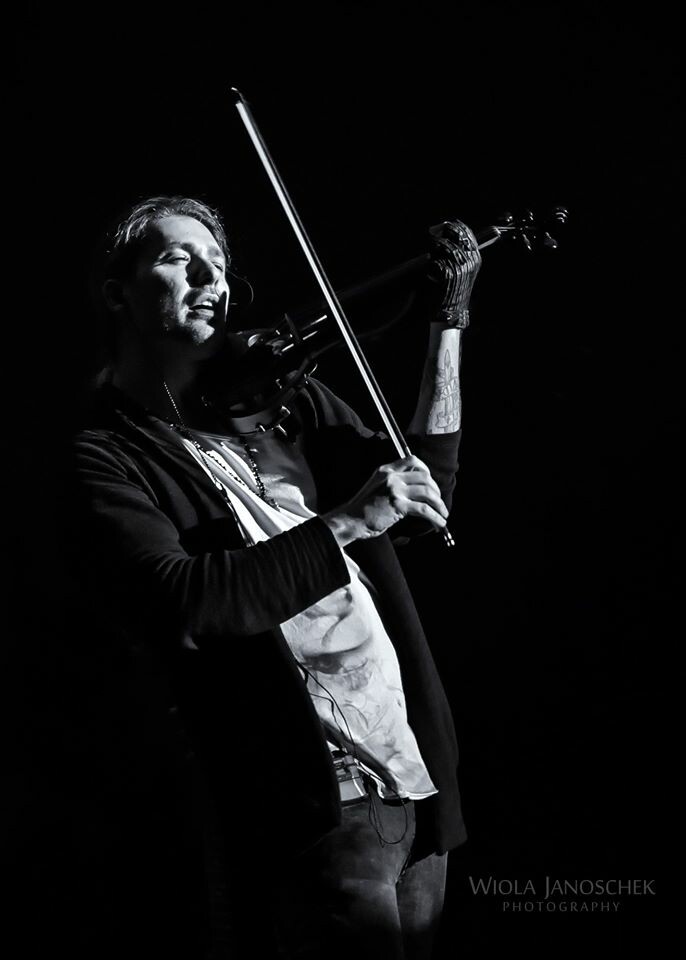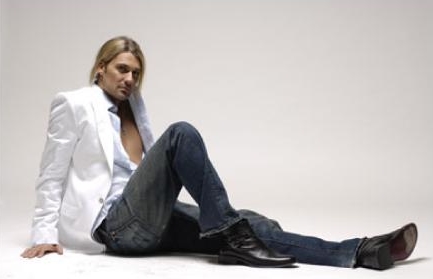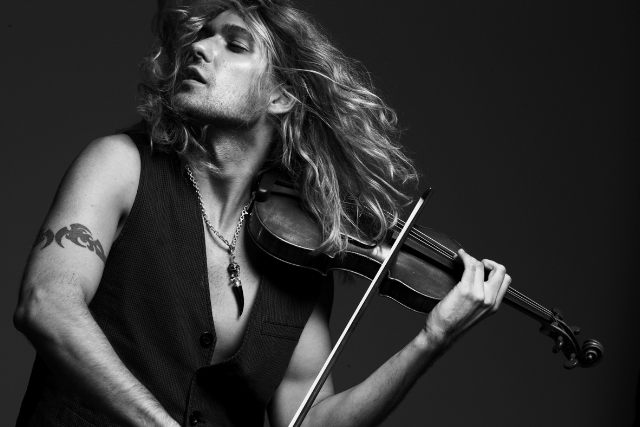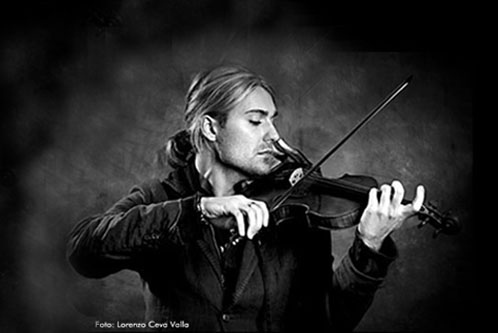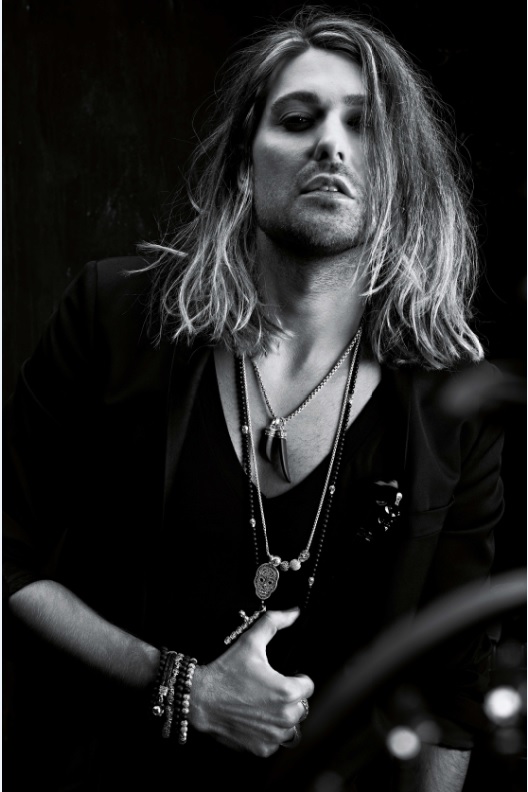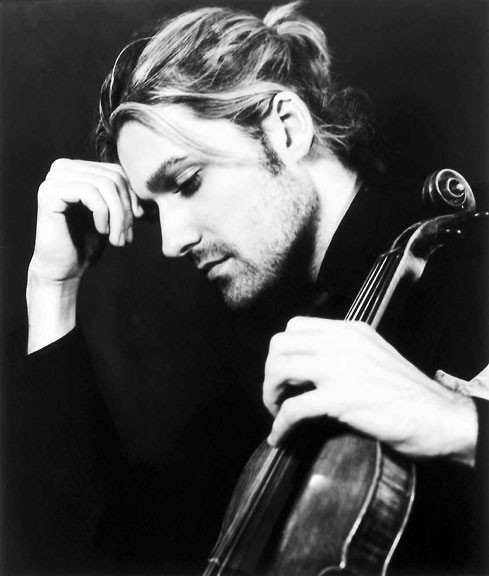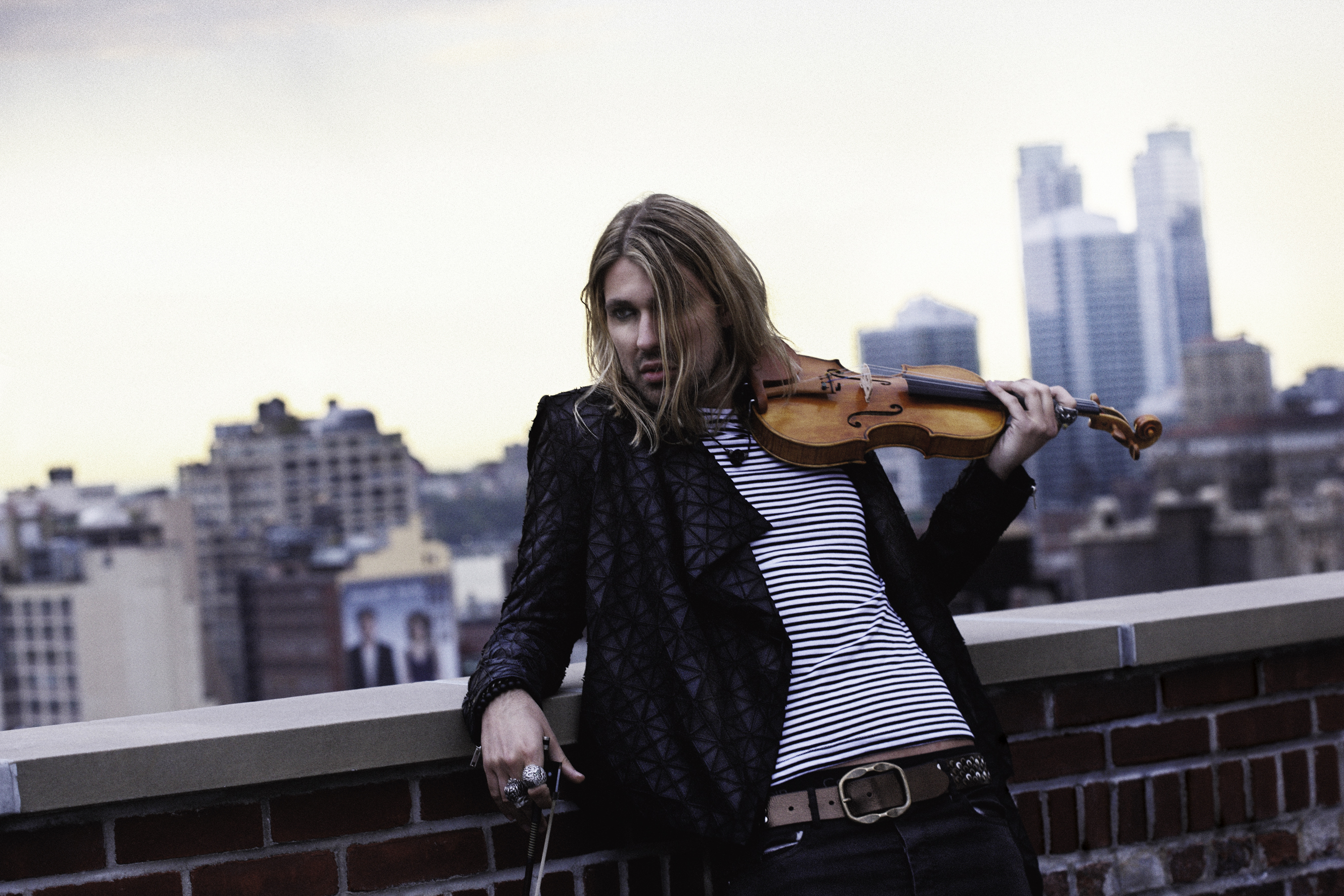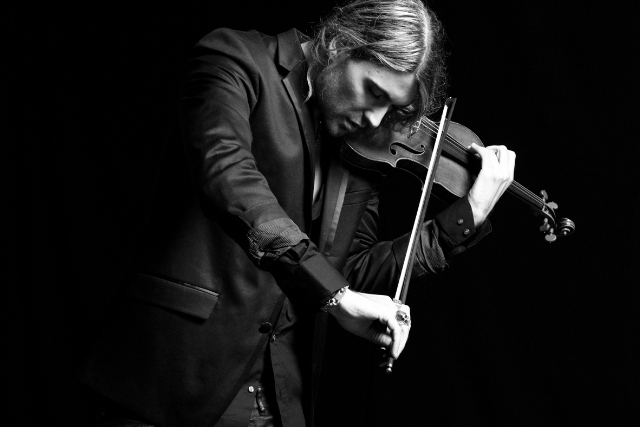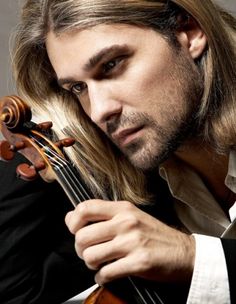
Played by Rekka_No_Ryo. View character sheet.
--Character Description--
He is a tall young man with long dirty blonde hair and hazel green eyes. He is wearing a unticked white button down shirt with either a black dress jacket or a black bomber jacket worn over it. He is also wearing a belt, some black jeans and a pair of black leather engineer boots on his feet. When he talks its with a light german accent.
--History--
Matthias Weiß was born in Hamburg, Germany, the result of a brief affair to an english composer Adrian Carnot (a famous, or rather notorious the kind of composer an upand coming conductor would cite inorder to show off to show that they were in the know, called by some crazy and eccentric, a modern savior of classical music..), and Else Bach,a musician from the Berlin Philharmonic. His mother's side of the family is an old german family being Cultists, or as his mothers side likes to refer to themselves, by the traditional title of The Sahajiya, its older name, whose meaning – “the Naturals” . (reflecting the group’s embrace of human passions, natural cycles, postmodern neotribalism, and rejection of the Technocratic civilization process.) Being apart of several different factions over the generations from, the Children's Crusade, Cult of Acceptance to the Joybringers, and K'an Lu. Social Cultists helping humanity on many fronts such as combating aids, homelessness, pushing to legalize pot for medical purposes, opening art or dance schools in under privileged areas and a lot helping to protect the children, fighting to end child slavery and prostitution.
He is the middle child his younger sister Sofie, and older siblings Kaspar and Mina from a previous marriage of his mothers. He did not know much about his biological father, because he left them when he was 14 months old as his mother wound up marrying her childhood sweetheart and father of Sofie, as well as the man that Matthias considers his father, Till Weiss, a Hermetic Architect from the House Verditius.
Being from a long line of awakened families, they held nothing back from their children, sensing the potential in them from a young age and nurturing them. Matthias showed musical talent from an early age. His mother "taught him" how to play a toy piano she bought him after he was banging on various pots and pants to a song on the radio. The 3-year-old looked on, evidently with fascination: his mother said to various family friends that at this age "he often spent much time at the keyboard, picking out the thirds, and his pleasure showed on his little face that it sounded good to him." By the age of 4, his father, for a game as it were, began to teach him a few minuets and pieces at the Keyboard. His family would note that the lad could play it near faultlessly and with the greatest of delight, keeping exactly in time.
His mother would let him listen to Brahms, Chopin, Mozart, Bach, Beethoven and the like as the music seemed to entrance his spirit. By the time he was 7 his mother started training him on the keyboard she had, as well as the old beat up acoustic guitar and violin that his grandfathers had given him for a present. Slowly the intricacies of mode and harmony were explained to the growing boy as he studied these and other classical composer's works, as well as the mystic undercurrents that pervaded their work. He also noticed he was slowly striving for enlightenment through art. To him, composers like Beethoven and Bach were students of the esoteric spirituality, capturing the sublime essence in waves of sound.
Late at night young Matthias would have dreams of being visited by long dead composers such as Beethoven, Mozart, Paganini and also such legendary musicians of old like Orpheus and Kui and Ling Lun as well as Benzaiten. They gave him something to look forward to when he went to sleep, as the dreams were not frightening, but comforting.
That's not to say all Matthias did was listen to music. The Wagner children were also very active in sports too from a young age. The boys liking soccer, ice hockey, basket ball, and martial arts and the girls liking soccer, swimming and also gymnastics and dancing as well as martial arts specifically wing chun and ju-jutsu. This is where the K'an Lu aspect of the Wagner's came to play, the seeking of the self-perfection, the balance between the mind, body and spirit.
It was when Matthias hit puberty that his life changed. Matthias was playing at a concert for his school, he was the first chair for Violin, and it was while playing something happened. The rhythmic chaos of the music, combined with the energy of the bands preformance, began to overload Matthiass's brain. He looked up at the hall's ceiling and swayed with everything he felt.
He was lost in the music, he could feel the sublime essence that was prevailing through the music that he played flowing through him like a current. He was lost in what the spanish call Duende or tener duende ("having duende"). It loosely means having soul, a heightened state of emotion, expression and authenticity, often connected with flamenco, but it is applicable to surfing, music or anything you do with feeling. The young violinist felt more energetic and alive than ever during this performance. The piece he was playing was Tartini's most famous work the "Devil's Trill Sonata," a solo violin sonata that requires a number of technically demanding double stop trills and is difficult even by modern standards. (One 19th-century myth had it that Tartini had six digits on his left hand, making these trills easier for him to play.) According to legend, the story behind "Devil's Trill" starts with a dream. Tartini allegedly told the French astronomer Jérôme Lalande that he dreamed that The Devil appeared to him and asked to be his servant. At the end of their lessons Tartini handed the devil his violin to test his skill—the devil immediately began to play with such virtuosity that Tartini felt his breath taken away. The complete story is told by Tartini himself in Lalande's Voyage d'un François en Italie (1765 - 66):
"One night, in the year 1713 I dreamed I had made a pact with the devil for my soul. Everything went as I wished: my new servant anticipated my every desire. Among other things, I gave him my violin to see if he could play. How great was my astonishment on hearing a sonata so wonderful and so beautiful, played with such great art and intelligence, as I had never even conceived in my boldest flights of fantasy. I felt enraptured, transported, enchanted: my breath failed me, and - I awoke. I immediately grasped my violin in order to retain, in part at least, the impression of my dream. In vain! The music which I at this time composed is indeed the best that I ever wrote, and I still call it the "Devil's Trill", but the difference between it and that which so moved me is so great that I would have destroyed my instrument and have said farewell to music forever if it had been possible for me to live without the enjoyment it affords me."
Matthias was focusing it all through his playing. His eyes fell on the violin as he had became aware of having broken all but one string as he finished. He felt a strange pause, as if everything was stopping, before a delayed reaction -- either his senses, or the world around him -- went in an uproar of cheers and laughter at his performance. He was a little shocked and bowed as he sat down. After the show ended, his parents and some friends from the local chantry that they belong to, approached him and congratulated him before excusing themselves as the adults talked to the side for a moment.
Matthias also saw a friend of his martial arts instructors, Karl Boehlig a Roda d'Oro member of the Brotherhood who also taught at his school among one of the members. He watched them occasionally gesture to him and then his parents as they came over to him and explained to him what had happened, as he had known, he had awakened and he was assuming they were discussing training methods. He was right as his parents had explained to him that in addition to the Cultist teacher he had, he would have the Roda d'Oro as a teacher due to his previous training in the martial arts, as he was the only one among his siblings that stuck with it on a regular basis.
The Akashic teacher introduced himself to Matthias and in a friendly voice explained to him that “music was a bridge between earth and heaven, and that everything was Kung Fu.” Kung-Fu simply means Hard work over time to accomplish skill. A painter can have kung-fu. Or the butcher who cuts meat every day with such skill his knife never touches bone. The musician can have kung-fu, or the poet who paints pictures with words and makes emperors weep. This, too, is kung-fu.
And so young Matthias was brought up in the Cult, as well as having some martial science taught to him by the brothers for self defense. He learned about how the Akashic, The Cultists and Euthies all had ties to india, the birth place of all 3 factions, and from there they spread. He learned about Sh'zar, Eos, the Code of Ananda, the 9 Sacred Passions, and how to balance this with the Akashic's training which was similar to that of something he was already familiar with, the K'an Lu practices and beliefs of the Cult.
How it all blended together, Understanding music, the flow and timing of battle, the mathematics of a symphony or the probabilities of combat. And so in addition to his regular activities, Matthias like his siblings were schooled in the Magickal arts, finishing by the time he graduated secondary school (Highschool). The young musician had a scholarship to the prestigious Juliard University due to his talent in music and so by himself, at the age of 18, he went to New York to persue his musical dreams.
To make ends meet Matthias did some modeling on the aside in addition to playing in various clubs and bars in addition to playing in various music halls with his training in Classical Music, Mostly the Violin, but he also has talent in the guitar and piano, playing those as well when he was needed. His musical talent was evident to all who herd him, as one of his instructors saw one of his compositions which impressed him and his teachers to the point of getting a composition of his, a first year student, preformed by the Philharmonic Orchestra concert in one of their concerts.
It was also around this time his biological father came back into his life. While he was in NYC, he got a call from a lawyer in the united kingdom, who was the executor of his father's will and holdings and informed him that his father died recently which was a shock to Matthias, as he had assumed that his dad was long dead, but that was not the case. And so once he got to the office in Britain, he was informed that because he was the only known child of Adrian, everything was left to him, his property, his copyrights to his entire body of work, some bonds, everything.. which stunned Matthias to say the least. So he was driven to his father's estate and got settled in and looked around to try to get to know him.
While going through his late father's belongings, he managed to find a lost piece of music written by his late father in a old faded leather bound note book with a strange symbol on it he did not recognise. It was a violin sonata. He noted that the sonata by itself is composed on the basis of a regular structure, but he noticed that it was un even and changes drastically depending on the passage. The 1st, 3rd and 5th movements are magnificent, he noted but it's also incomplete, as the final staves are empty so he played it but due to the uneven-ness and erratic nature of it he was not impressed by most of it. He found a list of his father's associates and called his father's former manager a Mr. Blackwood, (a talented musician who let his vices get the better of him and ruined his career..) When he arrived he showed it to him his father's former manager was floored about it and asked if he could make a copy of it and show it around to some people he knew.
Matthias agreed to it and the trail lead to another associate of his father, one of the only people he tolerated being around, a musical author and historian who played the piece for him and blackwood seemed inthralled by it. He was informed that the strange symbols that were on the sheet music were apart of a secret society called La société de l'ombre infernale (the society of the infernal shadow) an off shoot of the infamous Hellfire Club.
As it turned out each symbol represents one of four different aspects of a code, which, when joined together, create the symbol of their order. They were convinced that music has the copacity of unlocking portals between worlds. They believed that music had a kind of magick, not metaphorically or as part of some illusional trick, but real tangibal power. They believed that if the notes were properly aligned, and played with exactly the right pitch they could conjure and seduce the devil. Their theory was based on the belief that one does not address the devil with words. Only music would allow mortals to communicate with him and understand his divinity. As it turns out their leader lived in the house that his father bought and that his father was fascinated about their beliefs.
So Blackwood went back and explained to him about the symbols and that the first symbol represents power, the second immortality, 3rd appearance and the 4th duality and together they formed the symbols order, but he did not tell him the rest about summoning demons or their belief's only that it was a code and so he used the young lad to try and find the information to piece together how it was played or what was wrong with it.
It was while looking through more of his late father's belongings that Matthias descovered his father's secret. He was an Acharne and also left him because he was falling and he knew that he would taint them. He was appaled by this fact and disgusted. Blackwood had taken the original sheet music back to his place and discovered that the score had missing notes in invisible ink that is not visible on a copy and returned back to where Matthias was staying at where he was confronted by the young lad and after a heated debate, Blackwood fisex the young lad some tea, where he he drugged Matthias, leaving him passed out on the sofa as the last words he had herd before blacking out was "this music will change the world, and my talent will atlast be known.." and along with Charles the historian cracked the code with the stuff that Matthias had found, as it was hidden among some voice recordings that his father had hidden away as they had killed his father for spitting in his face, and the usual motives, jealousy for hiding this piece from them, and so they took the piece back to where the three of them in their Acharne group had met, along with any incriminating evidence that Matthias had found and tried to do what the order failed to do, they tried to use the sheet music and blackwood's former talent as a musician as a foci to summon a demon, as it turned out when played correctly and in the right order, it did indeed summon one of the infernal and in doing so, drug them to whatever infernal dimension it came from, as they had forgotten to do some things, like set up some wards or other safty measures in addition to being fully corrupt as of that moment.
This also caused the original sheet music as well as the delipated church where they had preformed their secret meetings and what have you to burn to the ground as the result of a stray spark. Matthias awoke later on in a groggy state by the old care former caretaker of the estate who know of the buildings past and reputation but nothing more and looked around for the stuff he had found, but it was all gone, all taken by Blackwood. And so Matthias ended up selling the estate and belongings, minus the bonds and music catalog and gave the money to the elderly former caretaker for a retirement and gift for putting up with his father.
And so he traveled back to the US to Juliard, throwing himself in to college and his other interests in an attempt to clense himself of what he had found out, also eventually coming to terms with everything as well. And so Matthias graduated with a Bachelor of Music degree from Juliard by the time he was 21, while continuing to be apart of the preforming arts scene. It was while he was on break and traveling, he picked up a female hitchhiker named Alison Zapata. She sported a blue buzz cut, a ton of piercings, and haunted eyes. She was most likely a homeless runaway traveling cross-country. Along the way, she talked about her boyfriends and dreams and a future that involved reaching the Coast and becoming the next Miley Cyrus. As they talked they shared some common interests over music and he told her what he was doing which was similar to what she was doing, and she was also safer with him than anyone else.
So once they got back to New York, he helped get Alice situated and set up, getting her a job in a music store where she could pick up free music lessons and what have you, as this helped her with her vocals and eventually she learned to play the guitar and piano as well and ended up starting her own band as well becoming popular on the indy scene, GRRL Power, and also gained faim during the Me Too and Times Up Movements, this was also while playing with several of the established orchestras (New York Philharmonic & New York Symphony) as well as several local clubs and various local concerts and events. Soon Matthias was on the lookout for possible bandmates.
He never did the garage band bit, (as he was in actual orchestras and bands while others did that..) and he used that experience, vision and great talent to back it up. It took several months, but he gathered a few interested guys up from clubs and local rock bands that were falling apart. Matthias got Tim Blackmore on drums, Mitch Antonini on keyboard, Paul Castle on rhythm guitar, and Mark Wigram on bass guitar with Matthias being the lead songwriter (along with Katja) and violinist/lead guitar and his friend from seattle, fellow Julliard graduate Katja Turunen on Vocals/Piano. They practiced their brand of symphonic neo-classical rock, sounding sort of like Nightwish in earnest, the six of them, with original lyrics and new sounds and rhythms.
So by early fall, they were ready to play the town. They called themselves Sonata Evermore and scored a few rounds on amateur nights. They quickly gravitated upwards and played a number of nightclubs in town. Sonata became a local hit and Matthias was looking forward to propelling themselves regionally. They started to do cover concerts for national tours and a few of their more popular songs like Wish of the Alleged and Seven Circles being played various radio stations, as well as Matthias and Katja's main job's working for symphony and phil harmonic, as after all they both are juliard trained musicians.


